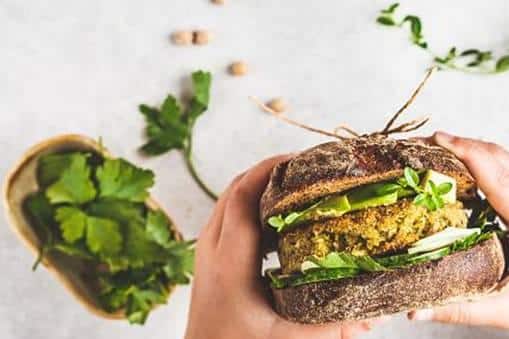|
Listen To The Article
|
When many people hear the phrase “living off the land,” they picture a couple (perhaps in their 30s) with a couple of kids playing happily on a swing made out of an old tire. There’s a cabin, naturally, maybe a few solar panels, and plots of land or gardens with lots of ripening vegetables – oh – and perhaps an apple tree in the background. This picture also usually has an animal or two running about. Maybe a goat or a cow, but certainly some chickens if nothing else. When the animals are thought of a bit more, then come movie-like scenes where the oldest child is told to go out and butcher one so they can learn how to do it for the future. The child is initially conflicted… but afterward accepts that the “circle of life” is all part of nature. But does this have to be the picture?
We’re not going to try to convince you to become vegetarian or vegan, but we will say that it’s a whole lot easier to live off the land without having to worry about animals. Some of you may have already found that the economics don’t pan out, with your chickens costing more to feed than it costs to buy eggs at the store, for example. And at that store, there are now more meat alternatives than ever before. These are incredibly high-tech substitutes – some printed with a 3D printer – that taste, smell, look, and even ‘cook’ like the real thing. Let’s put a pin in that, however, but the point is that even if you do decide to go meat-free, there are still ways of satiating meaty cravings and the faux options are multiplying and tastier than ever before.
Some of you may have heard of a book called The Good Life by Helen and Scott Nearing in which they relate stories from 60 years of living off the grid… but as vegetarians. And their diet certainly didn’t affect their longevity. Helen Nearing lived from 1904 to 1995, while Scott passed away at the age of 100! (1883 to 1983.) Scott was a trained economist and an ex-college professor who lost his position due to the radical anti-war beliefs he espoused during World War I. Helen was a trained musician whose family belong to a religion called Theosophy, which was essentially New Age before New Age was cool. Now, these two kind souls may be a bit too hippy for your tastes, they certainly were for their times, but in their book The Good Life, first published in 1954 and still in print today, they explain how they lived self-sufficiently for 60 years without a bite of meat. Even if you disagree with statements such as, “nature has provided man with an abundance of food for full nourishment instead of purifying corpses,” it’s still worth giving the Nearing’s book a look just to read their arguments related to animals and economics.
Put simply, raising animals for meat is costly and extremely time-consuming. Helen Nearing noted that “many animals eat more than they produce and are thus involuntary parasites,” and “that a large slice of the farmer’s time goes to the cutting and buying of hay,” and maintaining sheds and barns. If you’ve ever tried to raise animals you know at least a little bit of what she’s talking about. Even chickens require housing, veterinary care, some form of security in the form of a fence or house, and of course, plenty of food. Health care for you is another concern as you really can’t be a self-sustaining farmer and be sick all the time. Despite the purveyors of “Big Meat” trying to convince Americans about the nutritional value of eating meat at every meal “to stay healthy by getting enough protein,” if you look around, you’ll notice a lot of rather unhealthy people eating the so-called American diet.
High cholesterol, diabetes, heart disease, obesity, and cancer have all been linked to eating excessive amounts of meat. So even if you don’t give it up entirely, it’s fair to say the fewer animal products you consume the better. If you weigh less, it’ll be easier on your joints, and you’ll be able to stay mobile longer as you age… which is important for those living off the land as you can’t just call for a pizza. Also, you end up having more land to grow vegetables on. Those living in colder climes that have more space can put up a greenhouse and enjoy fresh vegetables all year round. In summary, you don’t have to become vegetarian or vegan to still understand and agree with the argument that raising animals for food is costly for small farmers, environmentally unsustainable when done on a mass scale such as in factory farming, and not necessarily the best place to get nutrition from. The Nearings experience is worth pondering, and if nothing else, perhaps it will inspire you to eat healthier as you continue your quest to live independently, and off the grid.
 Off The Grid News Better Ideas For Off The Grid Living
Off The Grid News Better Ideas For Off The Grid Living


